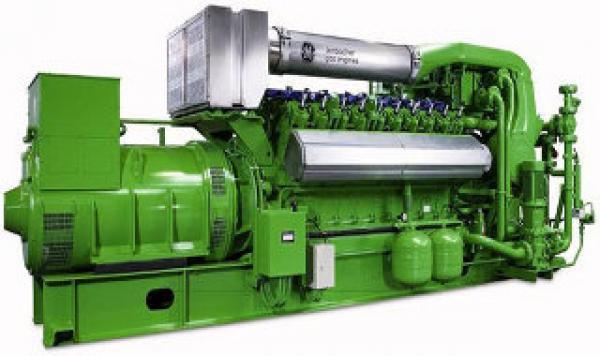
Big energy users such as the NHS are meeting financial pressures through CHP plus rigorous external audit and control. Richard McCann discovers how’
The conventional electrical generation that typically comes from a power station cannot avoid significant losses both as waste heat and in transmission. But combined heat and power (CHP) is generated on-site ‘ cutting transmission losses while utilising the resultant heat.
The significant savings to be had from on-site generation has made CHP particularly interesting to NHS Trusts, some of whom have now teamed up with consultants Carbon Architecture ‘ people with extensive knowledge of CHP performance optimisation.
‘Conventional generation has a total fuel efficiency of between 50 and 55%, while the total fuel efficiency of CHP is closer to 85%,’ said Carbon Architecture MD Will Todd, whose team starts with an analysis of the Trust’s current setup and then provides comparatives of where additional efficiency savings can be made and how the system can be optimised further.
The optimisation process looks at electrical & heat generation efficiencies and how these utilities are used on site. This shows where improvements can be made – not only to the CHP system but the wider heat use network on site. So as well as an audit of CHP Carbon Architecture also looks at maximising the savings CHP systems can deliver.
Allan Morley, Director of Estates & Facilities at Croydon Health Services NHS Trust, said, “Carbon Architecture has helped us navigate through multiple issues with an extremely complex CHP contract. They have also worked with the operator to improve CHP uptime and heat utilisation.
‘This work will result in the Trust optimising the contract with the operator and enhanced ongoing savings for the remainder of the contract. They also liaised with the operator to improve the transparency of the reporting and billing process so it is easier to understand.”
NHS Trusts often outsource the running and maintenance of CHPs to another organisation, so the consultants work collaboratively with the contracted operator and audit on behalf of NHS ‘ providing a detailed independent assessment of the outsourced operators to ensure that the NHS is getting the best value for money. Detailed knowledge of CHP contracts enables the consultants to provide a leading-edge review of the complex contractual agreements and billing to ensure that the Trust is getting everything it is entitled to. That’s significant because big energy users such as the NHS have complex billing spreadsheets ‘ and complexity often means errors.
‘Those errors are seldom in favour of the buyers ‘ meaning that mean the Trusts are over-charged for the services they are receiving,’ explains Will Todd. ‘We often find errors within the billing process that mean the Trusts are entitled to a rebate. We analyse the system potential and present back opportunities in a quantified form that easily allow business cases for improvement works to be made, helping not just the public sector but also many other energy intensive business and industries manage and minimise their increasing burden of costs and legislative compliance by developing and implementing sustainable cost saving strategies & solutions. Our core focus is waste, energy and water efficiency solutions for the NHS and FMCG industry. ‘
While carbon reduction and energy savings opportunities are front-of-mind for many organisations, it’s surprising to discover that a third of firms required to assess their energy use and submit their compliance audit, admit that they have so far failed to do so.
Dr Steve Priddy PhD, Head of Research at London School of Business & Finance said: ‘It is completely unacceptable for organisations to fail to comply with ESOS, and their stakeholders will rightly be concerned. One of the contributing factors is the lack of internal skill and knowledge in the requirements for ESOS compliance.
ESOS ‘ also called ISO50001 ‘ is likely to soon be much more prevalent in the UK, so businesses can’t ignore its significance. ‘Carbon Architecture have led the way in assisting many diverse organisations to attain ESOS compliance,’ added Dr Priddy, ‘and it is very clear from the results of their efforts that significant financial and efficiency savings are being achieved as a result.’
The government won’t be idle in pursuing late-adopters ‘ it has a number of formal options and penalties that it will apply to enterprises failing to comply with ESOS, from statutory enforcement notices and suspension or revocation of environmental permits to injunctions, Fixed Penalty Notices and prosecution.
There’s also a ‘name and shame’ policy where the government will issue press releases and other publicity relating to offences and offenders, as well as seeking to recover the costs of investigation and enforcement proceedings together with the full cost of remedial works in accordance with the ‘polluter pays’ principle.”
Dr Richard McCann MBA PhD is an author and broadcaster.
Our thanks to Will Todd of CarbonArchitecture.co.uk for his assistance with this article.



















